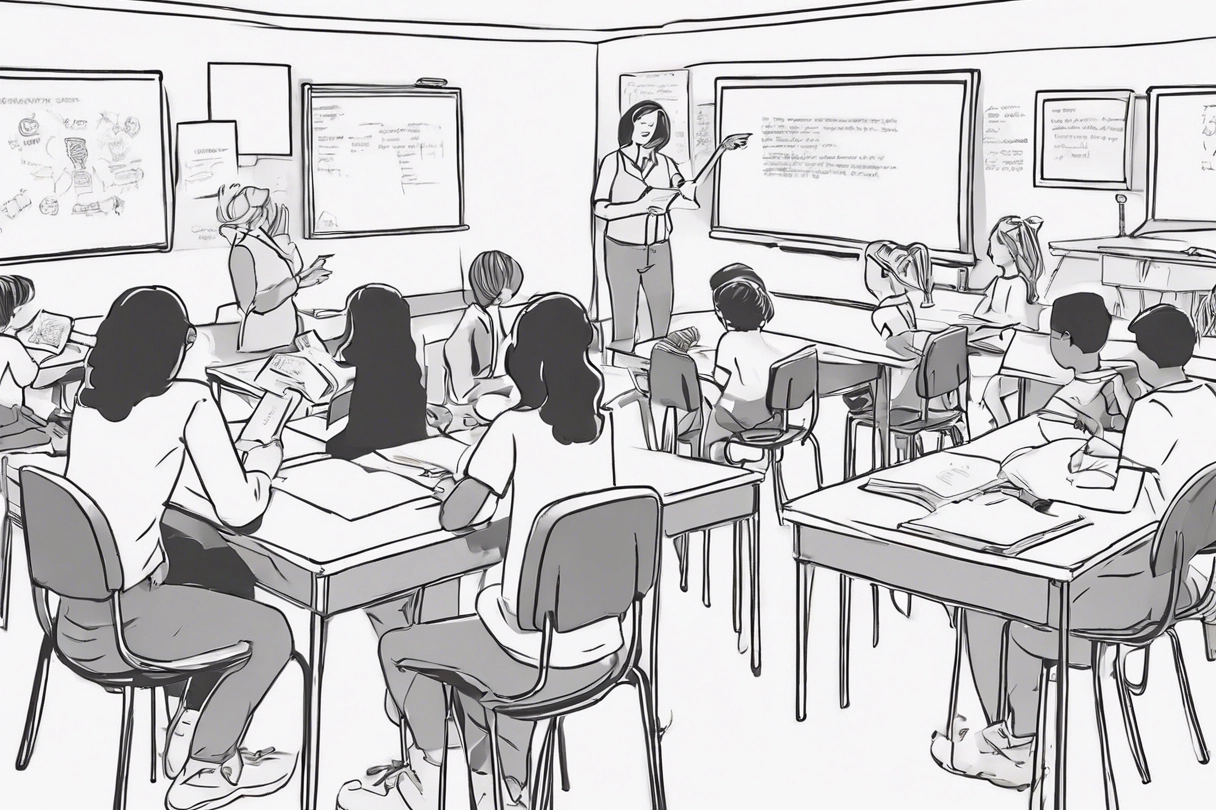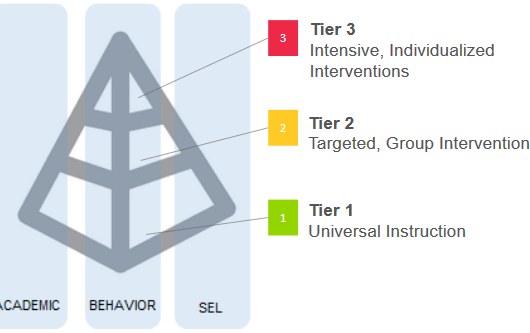Recently, I’ve been working with a school System to implement MTSS for wellbeing. The challenge with implementation I find is not so much collectively understanding what an MTSS is. Instead, its the challenge of establishing organisation coherence. Essentially, mapping the relationships between the processes and actors in the system so that we implement one MTSS and not multiple frameworks operating in silos all seeking to support the same student yet within different dimensions..
The power of the I-MTSS framework lies in its ability to create a transformative shift in education. By embracing the interconnectedness of academic, wellbeing and behavioral support, schools can provide comprehensive assistance that meets the needs of all students.
The Integrated Multi-Tiered System of Support (I-MTSS) holds the promise of overcoming this challenge. By integrating academic, behavioral and wellbeing support, the I-MTSS model recognises the interdependence of these domains and harnesses their power to support and overcome barriers to students participation in education.
At the heart of the I-MTSS framework lies the integration of evidence-based practices across a continuum of support. System leaders, schools and teachers select strategies grounded in research and adapt them to meet the specific needs of their students. Whether it’s embedding behavioral skills within appropriately differentiated lessons or providing contextually appropriate praise, integrating these practices fosters an environment where behavior positively influences academic performance and vice versa.
Like all MTSS models the I-MTSS model is no different. For those unfamiliar with MTSS it is as much about structure as it is about a process. The process of an MTSS follows a three tiered structure of supports increasing in intensity in line with student need. Tier 1 encompasses universal supports provided to all students. The entire system will not work unless there are sound supportive integrated academic and behavioral, attendance and wellbeing practices applied universally. For students showing signs of risk, Tier 2 offers targeted supports through small group interventions or intensified implementation of Tier 1 strategies. And for those facing acute or significant barriers, Tier 3 provides personalised intensive interventions. This often entails more intensive case management, incorporating diagnostic assessments and deeper personalised planning.
Data-driven decision making serves as a cornerstone of the I-MTSS framework. Systems and schools collect a range of data, including screening, progress monitoring, and outcome data, to inform their choices and monitor student progress. By utilising effective data management systems, teachers can simultaneously review multiple data streams across domains, empowering them to make informed decisions and adjustments based on students’ evolving needs.
The MTSS will not work without mentors and coaches. At a minimum it requires trained champions across the system and in schools where it is to be implemented. An integrated approach to mentoring, coaching and teacher communities of practice structures is essential for successful I-MTSS implementation.
Collaboration is key to a shared understanding of MTSS. MTSS works when everyone is involved. System leaders, school executive, teachers, parents, students, and community members ensures that expertise is leveraged at all levels. The fantastic efforts by the Queensland department of education exemplify this though a short YouTube clip whereby everyone from the Director of the System to the student and parents each know their role within the MTSS. By creating a culture of collaboration and support, schools organically embed I-MTSS into the culture of a school.
To build the capacity of MTSS communities of practice, investment in professional learning is critical to empowering educators in developing a collective efficacy working within an MTSS framework. School leaders need to actively engage teachers in this process, involving them in the development of a contextually relevant professional learning aligned with the school’s unique needs. Professional learning communities, guided by self-assessment data, provide sustained training and coaching, equipping teachers with the necessary skills to implement research-informed practices. By prioritizing fidelity and social validity data, professional learning efforts continuously evolve, building capacity and expertise in schools.
Professional development serves as a catalyst for growth, empowering teachers with the knowledge and skills needed to implement research-informed practices. By involving educators in the development of the framework and providing ongoing training and coaching, schools build their capacity to sustain the implementation of I-MTSS. Continuous monitoring and adjustment of professional development efforts ensure that they remain relevant, effective, and aligned with the needs of the school community.
To ensure the sustained and scaled implementation of I-MTSS, additional system enablers are crucial. School and system leaders play a central role in implementing I-MTSS into the cultural fabric of schools. Leaders create supportive environments that bring teams together to plan and reflect upon the structures in place. Budgeting with I-MTSS structures in mind is essential if the model is to take roots and be sustainable. Regular reviews of initiatives and priorities ensure alignment of the system and school vision. This also provides protection against policy creep and initiative fatigue. There will always be challenges with sustainable implementation of a broad initiative. However, collaborative problem-solving implementation challenges and investing in structural changes, such as data management systems, people to manage them and efficient communication tools, systems can enhance the effectiveness and scalability of I-MTSS.
The power of the I-MTSS framework lies in its ability to create a transformative shift in education. By embracing the interconnectedness of academic, wellbeing and behavioral support, schools can provide comprehensive assistance that meets the needs of all students. Whilst schools will continue to focus on academic achievement MTSS supports the recognition that behavior and social-emotional well-being are also important to a student’s overall success.





